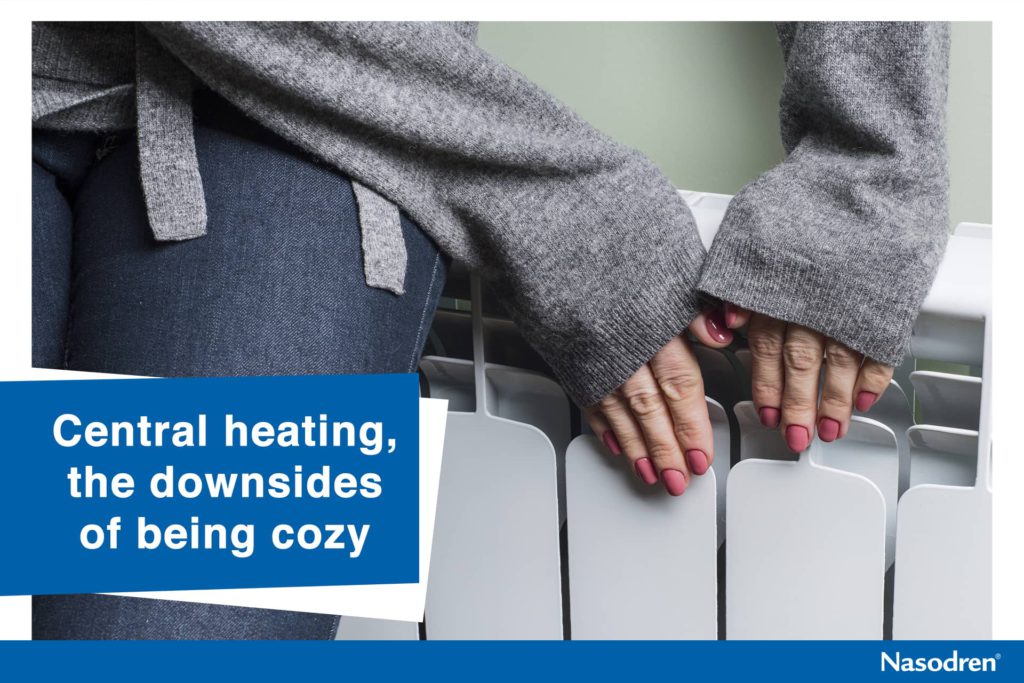Christmas is over and we are plunging into the harsh winter. In many parts of the globe, the land will soon (or it is already!) be covered in snow as temperatures drop below zero. Thus, it comes as no surprise that people ‘take shelter’ in their homes, often under the blankets and taking advantage of the, blessed by many, central heating systems. Some decades ago, few could have imagined that we would be able to hang out indoors with a summer t-shirt on while it’s freezing outside, but it’s a thing! However, is it good news?
Central heating systems have changed the way we live, and this is undeniable, yet such an evolution has brought along some disadvantages as well. No, all that glitters isn’t ‘warm’, and heating overuse can lead to problems that go beyond outrageous electricity and gas bills. We refer to health issues, which can arise or worsen due to this ‘artificial’ way of providing heat. Do you want to know how heating could be making us ill? Then, keep on reading!
1- Dryness and respiratory disorders
A big downside of using central heating is that it produces a dry atmosphere, which over the course of time can set off respiratory problems such as sinusitis, asthma or bronchitis. Dry air tends to dry out mucus, which turns thick and prompts nasal and paranasal blockage. What’s more, it traps infection-causing agents and dust, which often results in inflammation.
2- Watch your eyes
Haven’t you noticed that, when exposed to high heating, your eyes often get all dry and even itchy? Well, as you may expect, eyes don’t match up well with heaters, or rather, with the lack of moisture in the air. Bear in mind that eyes have three layers combining water, oil and mucus, so when they aren’t moist enough, such balance is at risk and so is eye health.
3- Don’t forget about your skin
Lack of moisture in the air can also be bad for your skin, leaving it parched. During winter, it’s common to suffer from dry skin due both to low temperatures and low humidity levels, but spending time indoors with the thermostat switched to maximum won’t help (rather the contrary). Not taking care of dry skin can lead to problems such as itchiness and skin rash, so keep an eye on it!
4- Temperature fluctuations
Keeping radiators at a higher temperature can create a temperature fluctuation between rooms and, of course, when walking out of your house. These sudden changes force our bodies to acclimatize to the new temperature very fast, which can disrupt our immune systems and, as a result, leave us more exposed to flu or seasonal cold, among other infectious agents. On top of that, when dealing with infants, overheating can give rise to a condition known as hyperthermia, which occurs when the body fails to thermoregulate itself and that it can be fatal.
5- Weight gain
Although further research is needed, some studies have shown evidence that heating might somehow be related to weight gain. And actually, it makes sense! If our bodies stay warm, they don’t need to burn extra calories to keep us at the right temperature and protect us from the cold. Even so, some suggests that when we are cold, we tend to eat more, so the debate remains open.
Again, it all comes down to moderation. Having central heating provides us with so much comfort, but it needs to be used in the correct measure.
Nasodren is 100% natural, with no rebound efect
Effectively reduces nasal congestion
Buy now HERE
